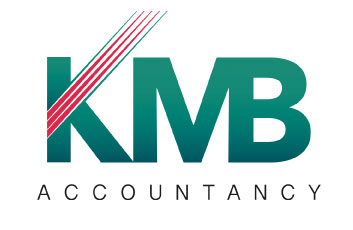| · An extension of the Coronavirus Job Retention Support Scheme (CJRS) to September 2021 across the UK. The scheme will remain unchanged until July when the government will ask businesses to provide a 10% contribution to employees’ pay, which will rise to 20% in August and September.
· Small and medium-sized employers in the UK will continue to be able to reclaim up to two weeks of eligible Statutory Sick Pay (SSP) costs per employee from the Government.
· An extension of the UK-wide Self Employment Income Support scheme (SEISS) to September 2021. This will include a fourth grant for three months support at 80% of average profits, continuing until April – then 50% commencing from May onwards, for businesses where turnover has fallen by 30% or more. Businesses, where turnover has fallen less than 30% will receive a 30% grant.
· The rate of Corporation Tax will increase to 25% from 2023. Businesses with profits of £50,000 or less will continue to be taxed at 19% and a taper above £50,000 will be introduced so that businesses with profits greater than £250,000 will be taxed at the full 25% rate.
· Restart Grants will be brought into play in April, following the end of existing grant programmes in March. Non-essential retailers, which will open first, will receive grants of up to £6,000 per premise; hospitality and leisure business, which will open later and be more heavily impacted by restrictions, will be able to claim up to £18,000.
· A UK-wide Recovery Loan Scheme will replace the Coronavirus Business interruption Loans Scheme (CBILS). Through to the end of 2021, businesses of any size can apply for loans from £25,000 to £10 million and the Government will provide a guarantee for 80% to lenders.
· The Government will extend the temporarily reduced rate of VAT of 5% for hospitality, holiday accommodation, and attractions until 30 September 2021. This will be followed by the introduction of a new reduced rate of 12.5% from 1 October 2021 that will be in effect until 31 March 2022 at which point it will revert to the standard rate.
· Business rates relief gives eligible business property with values below £51,000 100%. Pubs with a value below £100,000 will get a £5,000 discount.
In recognition of the fact many small businesses occupying very small properties pay little or no business rates due to Small Business Rates Relief (SBRR) the Government is also providing £2.2 billion of funding to local authorities in England to distribute as grants of £3,000 to around 700,000 businesses currently eligible for SBRR or Rural Rate Relief.
· Extension of the apprenticeship hiring incentive in England to September 2021 and an increase of payment to £3,000.
· The availability of incorporated and unincorporated businesses to carry-back trading losses up to three years (rather than just one) will be extended.
A maximum of £2,000,000 of unused trading losses made in each of the tax years 2020 to 2021 and 2021 to 2022 will apply to unincorporated businesses. For corporations, the £2,000,000 maximum applies separately to unused trading losses in relevant accounting periods ending between 1 April 2020 and 31 March 2021 and between 1 April 2021 and 31 March 2022.
· Companies investing in qualifying new plant and machinery between 1 April 2021 and March 2023 will benefit from new first-year capital allowances. Investments in main-rate assets will be relieved by a 130% super-deduction, whilst investments in assets qualifying for special rate relief will benefit from a 50% first-year allowance.
· Eight new English Freeports will be based in East Midlands Airport, Felixstowe & Harwich, Humber, Liverpool City Region, Plymouth, Solent, Thames and Teesside. The Enhanced rate of SBA of 10% will be made available to the designated tax sites for corporation tax and income tax purposes. To qualify, the structure or building must be brought into use on or before 30 September 2026. Stamp Duty Land Tax relief will be made available for purchases of land or property on these areas, subject to that land or property being acquired and used for qualifying purposes and subject to a control period of up to 3 years.
· New Help to Grow schemes. Help to Grow Digital for small and medium-sized businesses will provide free online technology advice and 50% discounts on approved software. Help to Grow Management Training will also cover areas such as marketing and financial management for these businesses. |

Leave a Reply
Want to join the discussion?Feel free to contribute!